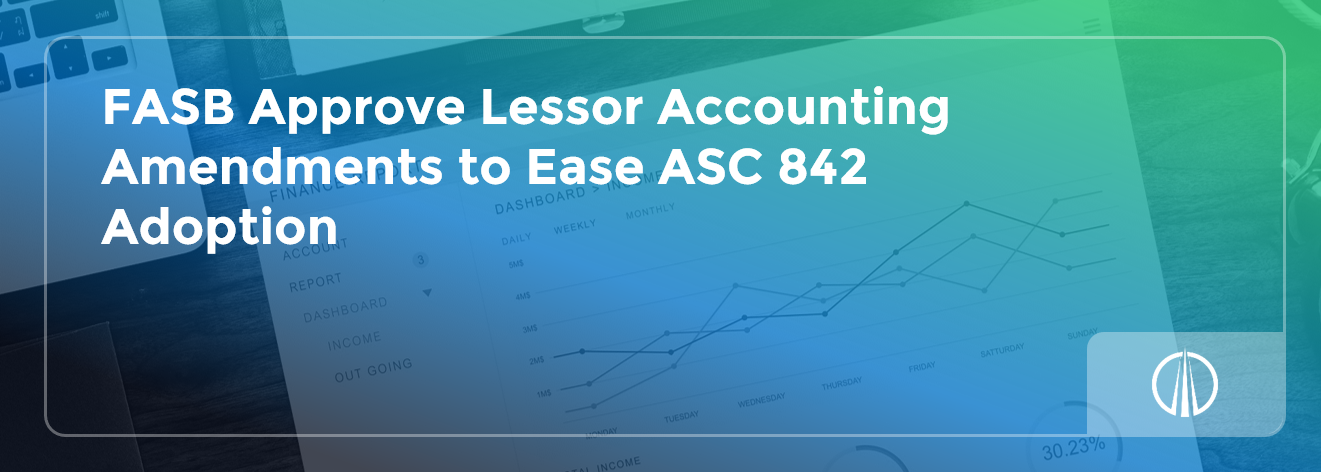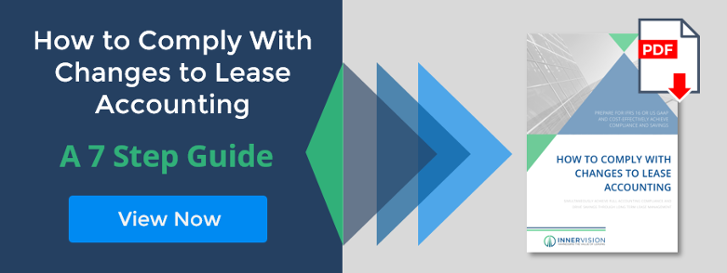FASB Approve Lessor Accounting Amendments to Ease ASC 842 Adoption
Updated 1st December 2022 | 3 min read Published 4th December 2018

Approved Accounting Standards Amendments, Leases (Topic 842): Narrow-Scope Improvements for Lessors:
In many related articles, blogs and bulletins the difficulties facing organisations embarking on the necessary transition to IFRS 16 and ASC 842 compliance have been well debated, documented and discussed. There are options that can be taken and there are expedients that can be utilised but as more and more businesses take up implementation of these relatively new and untried lease accounting standards those responsible for publishing it have looked at where a tweak might be appropriate or more officially where an actual update might be issued to counter duplication of effort, unnecessary cost or unintended complexity. This particular blog is very specific rather than general but does demonstrate that standards and regulations though published need regular reviewing.
In an update, issued at the end of October 2018, detailing recent Board decisions, the Financial Accounting Standards Board (“FASB”) tentatively approved accounting standard amendments that are designed to reduce the cost, complexity and ease the adoption of the new lease accounting standard for lessors.
The approved amendments addresses:
Sales taxes and other similar taxes collected from lessees:
The amendment permits lessors to use an accounting policy election, whereby a lessor is allowed to account for sales tax and other similar taxes collected from a lessee as costs of the lessee. The lessor would account for these costs as costs of the lessee and exclude the amounts from lease revenue and the associated expense.
Lessor Costs:
Under the recent guidance, lessors would be required to exclude from variable payments all costs paid by a lessee directly to a third party. In addition, cost not part of the contract consideration that are paid by a lessor directly to a third party and are reimbursed by a lessee are considered lessor costs and should be accounted for by the lessor as variable payments.
Recognition of Variable Payments for Contracts with Lease and Non-Lease Components:
The Board affirmed its decision to clarify paragraph 842-10-15-40, subject to additional amendments that would further define how and when variable payments may be apportioned to a lease component only.
With respect to the effective date relating to the above guidance, the Board has decided that the effective date for these amendments will be that same as the original effective date for the new standard. Entities already applying the new standard may apply these amendments either (1) as of the entity’s original effective date of the new leases standard, (2) in the first reporting period ending following the issuance of the amendments, or (3) in the first reporting period following the issuance of the amendments. Either retrospective or prospective adoption is permitted for such entities.
The above amendment will be applicable to all new leases entered into on or after the effective date and all existing leases as of the effective date of application.
Where can I find more Guidance on Transitioning to ASC 842?
For further guidance on implementing the new lease accounting standards, we have put together this inclusive guide to transitioning to the new standards – FASB ASC 842 or IFRS 16. Just follow the link below to access the guide.
Disclaimer: this article contains general information about the new lease accounting standards only and should NOT be viewed in any way as professional advice or service. The Publisher will not be responsible for any losses or damages of any kind incurred by the reader whether directly or indirectly arising from the use of the information found within this article.







